-
 Bitcoin
Bitcoin $108,165.4587
0.78% -
 Ethereum
Ethereum $2,456.3517
1.15% -
 Tether USDt
Tether USDt $1.0003
0.00% -
 XRP
XRP $2.1934
0.05% -
 BNB
BNB $650.0935
0.52% -
 Solana
Solana $151.3905
2.69% -
 USDC
USDC $0.9998
0.00% -
 TRON
TRON $0.2751
-0.32% -
 Dogecoin
Dogecoin $0.1640
0.87% -
 Cardano
Cardano $0.5631
0.57% -
 Hyperliquid
Hyperliquid $38.7115
4.69% -
 Bitcoin Cash
Bitcoin Cash $493.1868
-0.39% -
 Sui
Sui $2.8217
3.61% -
 Chainlink
Chainlink $13.3994
2.08% -
 UNUS SED LEO
UNUS SED LEO $9.1632
0.94% -
 Avalanche
Avalanche $18.0318
1.97% -
 Stellar
Stellar $0.2388
0.35% -
 Toncoin
Toncoin $2.8763
1.41% -
 Shiba Inu
Shiba Inu $0.0...01160
1.59% -
 Litecoin
Litecoin $86.6393
1.29% -
 Hedera
Hedera $0.1485
0.16% -
 Monero
Monero $315.7948
1.56% -
 Polkadot
Polkadot $3.4240
1.88% -
 Bitget Token
Bitget Token $4.6314
-0.44% -
 Dai
Dai $0.9998
-0.01% -
 Ethena USDe
Ethena USDe $1.0002
-0.01% -
 Uniswap
Uniswap $7.2110
2.59% -
 Aave
Aave $270.6087
6.07% -
 Pi
Pi $0.5350
0.52% -
 Pepe
Pepe $0.0...09545
1.26%
How to avoid address conflicts when generating a Bitcoin wallet address?
Bitcoin's cryptographic hashing ensures unique addresses, making collisions extremely improbable. Best practices, like using a new address per transaction and a reputable wallet, further minimize this already minuscule risk.
Mar 12, 2025 at 12:10 pm
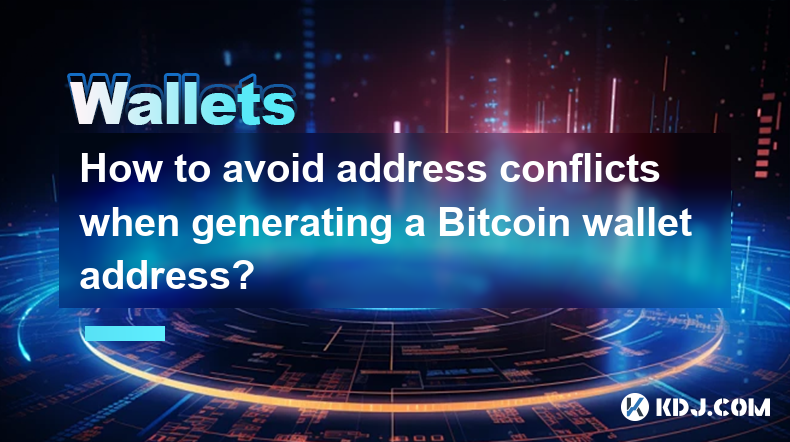
Key Points:
- Understanding Bitcoin address generation methods and their inherent collision avoidance mechanisms.
- The role of cryptographic hashing in ensuring unique Bitcoin addresses.
- The practical improbability of address collisions despite the vast address space.
- Best practices for secure wallet management to minimize the risk of address reuse and potential conflicts.
- Exploring different types of Bitcoin addresses and their implications for conflict avoidance.
How to Avoid Address Conflicts When Generating a Bitcoin Wallet Address?
Bitcoin's cryptographic architecture is designed to minimize, and practically eliminate, the possibility of address conflicts. The sheer size of the potential address space makes accidental collisions astronomically improbable. However, understanding the underlying mechanisms and best practices for wallet management can further reduce any theoretical risk.
Bitcoin addresses are not randomly generated. They are derived from a user's private key through a series of cryptographic operations, primarily involving elliptic curve cryptography and hashing. This process ensures that even a minuscule change in the private key results in a completely different public key and, consequently, a drastically different Bitcoin address.
The core of Bitcoin's address generation is the use of cryptographic hash functions, such as SHA-256 and RIPEMD-160. These functions take an input (like a public key) and produce a fixed-size output (the hash). The probability of two different inputs producing the same hash is exceptionally low, making collisions extremely unlikely.
While the probability of a collision is infinitesimally small, it's not entirely zero. The vast address space, using base58 encoding, allows for a massive number of unique addresses, far exceeding the current and projected number of Bitcoin transactions. This makes accidental collisions virtually impossible in practice.
However, users should still employ good wallet management practices to further minimize any potential issue. Reusing addresses is generally discouraged. Each transaction ideally uses a fresh address. This helps maintain privacy and reduces the chance of inadvertently mixing funds from different sources.
Most Bitcoin wallets automatically generate new addresses for each transaction, negating the need for manual address generation and the associated risk of conflicts. This automatic address generation is a built-in security feature to protect against potential issues.
Let's explore the different types of Bitcoin addresses and how they contribute to conflict avoidance. SegWit addresses (bech32), for example, offer improved efficiency and security compared to older P2PKH addresses. They are designed to reduce transaction fees and enhance privacy, indirectly contributing to a smoother transaction process and minimizing the potential for complications.
Choosing a reputable and well-maintained wallet is crucial. Poorly coded wallets might have vulnerabilities that could theoretically lead to address generation issues. Sticking to established and widely used wallets significantly mitigates this risk.
Using a deterministic wallet further reduces the risk. These wallets generate multiple addresses from a single seed phrase (mnemonic). This means you can recover all your addresses from this seed, even if you lose access to your wallet software. This is important for managing your addresses and ensuring you don't accidentally reuse one.
Furthermore, keeping your private keys secure is paramount. Never share your private keys with anyone. Compromised private keys can lead to loss of funds, and this has nothing to do with address conflicts but is a much more significant security concern.
Regularly backing up your seed phrase is essential. This allows you to recover your wallet and all its associated addresses if your device is lost or damaged. This is a vital aspect of security, preventing the need to generate new addresses and potentially introducing any complications.
Frequently Asked Questions:
Q: What happens if a Bitcoin address collision does occur?
A: A true collision is incredibly improbable. If, hypothetically, it did occur, the transaction would likely fail due to the inherent validation mechanisms within the Bitcoin network. The network would detect the duplicate address and reject the transaction.
Q: Is it possible to deliberately create address collisions?
A: No. The cryptographic hashing involved makes it computationally infeasible to deliberately create a collision. The computational resources required would be astronomical and far exceed any practical possibility.
Q: How many Bitcoin addresses are possible?
A: The number of possible Bitcoin addresses is incredibly vast, making collisions extremely unlikely. The precise number depends on the address type, but it's on the order of 2160, an astronomically large number.
Q: Should I use a new address for every transaction?
A: While not strictly mandatory, using a new address for every transaction enhances privacy and is generally considered a best practice. Most modern wallets automatically handle this.
Q: What should I do if I suspect an address conflict?
A: Address conflicts are extremely unlikely. If you encounter issues, it is more likely due to other problems like typos in the address, insufficient funds, or network issues. Check these factors first.
Disclaimer:info@kdj.com
The information provided is not trading advice. kdj.com does not assume any responsibility for any investments made based on the information provided in this article. Cryptocurrencies are highly volatile and it is highly recommended that you invest with caution after thorough research!
If you believe that the content used on this website infringes your copyright, please contact us immediately (info@kdj.com) and we will delete it promptly.
- SEI TVL Soars, Price Hints at Breakout: What's Next?
- 2025-06-29 18:30:12
- Cardano, Bitcoin Cash, Remittix: Charting the Course for Crypto's Next Big Moves
- 2025-06-29 18:50:12
- Stock Market News, Weekly Review, June 2025: A Month of Crypto, Commodities, and Corporate Maneuvers
- 2025-06-29 18:30:12
- Vitalik Buterin, Sam Altman, and the World of Digital Identity: A Delicate Balance
- 2025-06-29 19:10:15
- NFT Sales Spotlight: Guild Guardians and Courtyard Lead the Charge
- 2025-06-29 19:30:12
- Binance, Kenya, and the Crypto Board: A New Chapter Unfolds
- 2025-06-29 19:30:12
Related knowledge
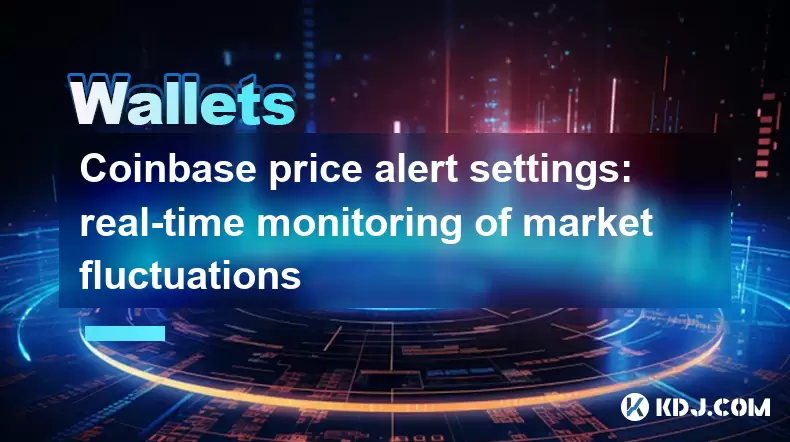
Coinbase price alert settings: real-time monitoring of market fluctuations
Jun 29,2025 at 07:00am
Setting Up Coinbase Price AlertsTo begin real-time monitoring of market fluctuations on Coinbase, users can utilize the built-in price alert feature. This function allows you to receive notifications when a cryptocurrency reaches a specific price point. To access this setting, open the Coinbase app or log in via the web platform. Navigate to the 'Prices...

How to stake cryptocurrencies on Coinbase? Benefits and risks
Jun 27,2025 at 06:36pm
Understanding Cryptocurrency Staking on CoinbaseStaking cryptocurrencies involves locking up digital assets to support the operations of a blockchain network, typically in return for rewards. Coinbase, one of the most popular cryptocurrency exchanges globally, offers staking services for several proof-of-stake (PoS) coins. Users can stake their holdings...
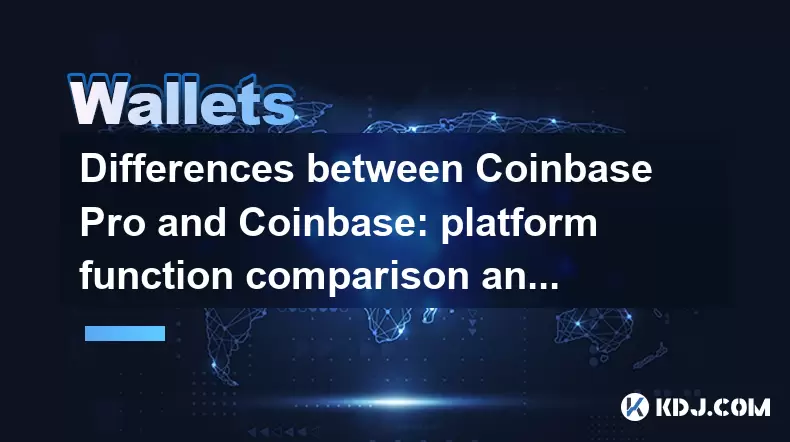
Differences between Coinbase Pro and Coinbase: platform function comparison and analysis
Jun 29,2025 at 08:21am
Overview of Coinbase and Coinbase ProWhen exploring the cryptocurrency trading landscape, users often encounter two platforms under the same parent company: Coinbase and Coinbase Pro. While both are operated by the same organization, they cater to different types of users and offer varying features. Coinbase is primarily designed for beginners and casua...

How to contact Coinbase customer service? Support channels and response times
Jun 28,2025 at 01:29pm
Contacting Coinbase Customer Service: Support Channels and Response TimesIf you're a user of Coinbase, reaching their customer service team may become necessary for various reasons, such as account verification issues, transaction disputes, or technical difficulties. Understanding the different support channels available and what to expect in terms of r...

Coinbase advanced trading function usage tutorial: limit orders and market orders
Jun 28,2025 at 09:07pm
Understanding the Difference Between Limit Orders and Market OrdersWhen using Coinbase's advanced trading features, it is crucial to understand the fundamental difference between limit orders and market orders. A market order executes immediately at the best available price on the market. This type of order ensures that your trade goes through quickly, ...
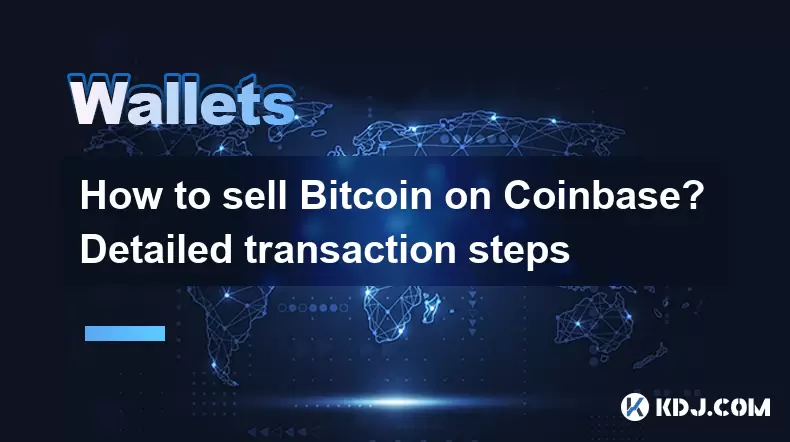
How to sell Bitcoin on Coinbase? Detailed transaction steps
Jun 29,2025 at 04:22am
Setting Up Your Coinbase Account for TransactionsBefore you can sell Bitcoin on Coinbase, you must ensure your account is fully set up and verified. Coinbase requires identity verification to comply with regulatory standards. This process involves uploading a government-issued ID, confirming your address, and sometimes submitting a selfie holding the ID...

Coinbase price alert settings: real-time monitoring of market fluctuations
Jun 29,2025 at 07:00am
Setting Up Coinbase Price AlertsTo begin real-time monitoring of market fluctuations on Coinbase, users can utilize the built-in price alert feature. This function allows you to receive notifications when a cryptocurrency reaches a specific price point. To access this setting, open the Coinbase app or log in via the web platform. Navigate to the 'Prices...

How to stake cryptocurrencies on Coinbase? Benefits and risks
Jun 27,2025 at 06:36pm
Understanding Cryptocurrency Staking on CoinbaseStaking cryptocurrencies involves locking up digital assets to support the operations of a blockchain network, typically in return for rewards. Coinbase, one of the most popular cryptocurrency exchanges globally, offers staking services for several proof-of-stake (PoS) coins. Users can stake their holdings...

Differences between Coinbase Pro and Coinbase: platform function comparison and analysis
Jun 29,2025 at 08:21am
Overview of Coinbase and Coinbase ProWhen exploring the cryptocurrency trading landscape, users often encounter two platforms under the same parent company: Coinbase and Coinbase Pro. While both are operated by the same organization, they cater to different types of users and offer varying features. Coinbase is primarily designed for beginners and casua...

How to contact Coinbase customer service? Support channels and response times
Jun 28,2025 at 01:29pm
Contacting Coinbase Customer Service: Support Channels and Response TimesIf you're a user of Coinbase, reaching their customer service team may become necessary for various reasons, such as account verification issues, transaction disputes, or technical difficulties. Understanding the different support channels available and what to expect in terms of r...

Coinbase advanced trading function usage tutorial: limit orders and market orders
Jun 28,2025 at 09:07pm
Understanding the Difference Between Limit Orders and Market OrdersWhen using Coinbase's advanced trading features, it is crucial to understand the fundamental difference between limit orders and market orders. A market order executes immediately at the best available price on the market. This type of order ensures that your trade goes through quickly, ...

How to sell Bitcoin on Coinbase? Detailed transaction steps
Jun 29,2025 at 04:22am
Setting Up Your Coinbase Account for TransactionsBefore you can sell Bitcoin on Coinbase, you must ensure your account is fully set up and verified. Coinbase requires identity verification to comply with regulatory standards. This process involves uploading a government-issued ID, confirming your address, and sometimes submitting a selfie holding the ID...
See all articles























































































